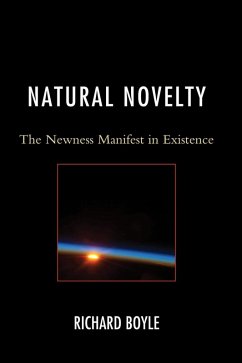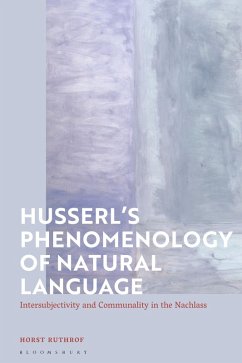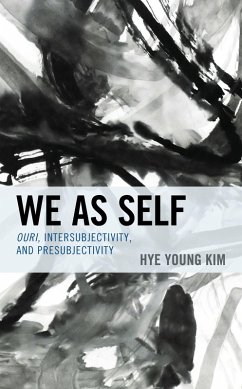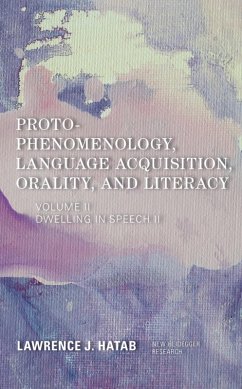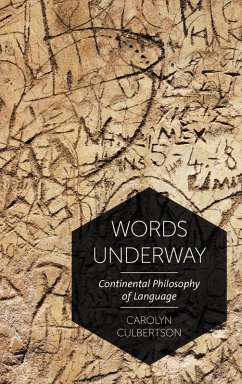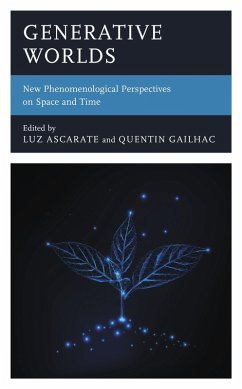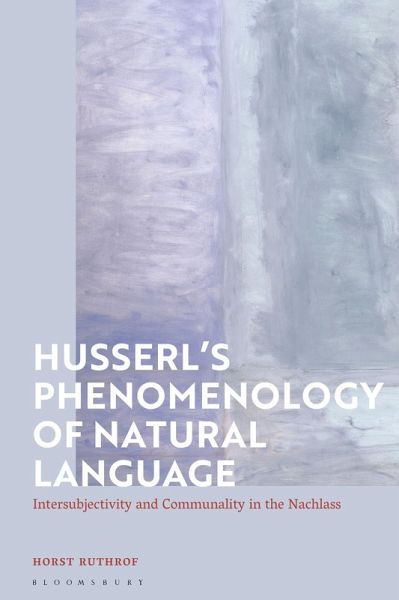
Husserl's Phenomenology of Natural Language (eBook, ePUB)
Intersubjectivity and Communality in the Nachlass

PAYBACK Punkte
12 °P sammeln!
Horst Ruthrof revisits Husserl's phenomenology of language and highlights his late writings as essential to understanding the full range of his ideas. Focusing on the idea of language as imaginable as well as the role of a speech community in constituting it, Ruthrof provides a powerful re-assessment of his methodological phenomenology. From the Logical Investigations to untranslated portions of his Nachlass, Ruthrof charts all the developments and amendments in his theorizations. Ruthrof argues that it is the intersubjective character to linguistic meaning that is so emblematic of Husserl's p...
Horst Ruthrof revisits Husserl's phenomenology of language and highlights his late writings as essential to understanding the full range of his ideas. Focusing on the idea of language as imaginable as well as the role of a speech community in constituting it, Ruthrof provides a powerful re-assessment of his methodological phenomenology. From the Logical Investigations to untranslated portions of his Nachlass, Ruthrof charts all the developments and amendments in his theorizations. Ruthrof argues that it is the intersubjective character to linguistic meaning that is so emblematic of Husserl's position. Bringing his study up to the present day, Ruthrof discusses mental time travel, the evolution of language, and protosyntax in the context of Husserl's late writings, progressing a comprehensive new phenomenological ontology of language with wide-ranging implications for philosophy, linguistics, and cultural studies.





